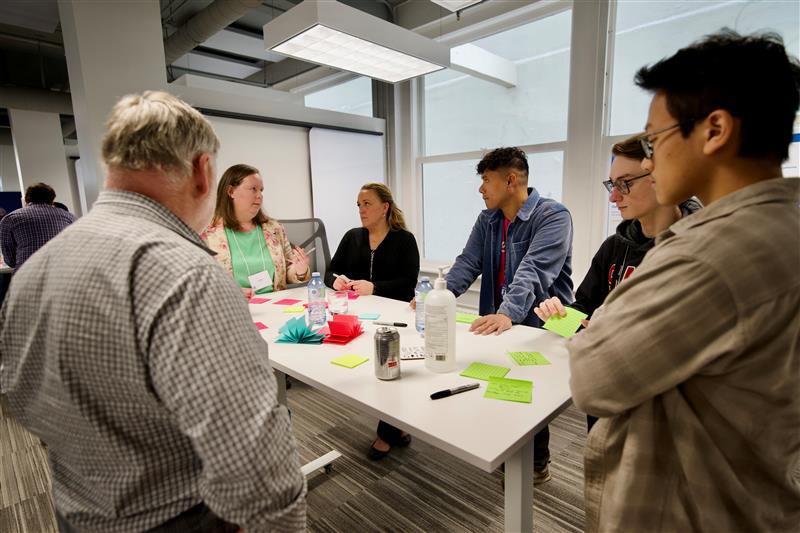Can FinTech make the future of banking more equitable?

As customers of digital financial services, most of us know the convenience of paying bills, shopping and sending money virtually. Financial technology (FinTech) solutions have made traditional services more accessible — but what about more equitable?
Through FinTech Immersion Days, SAIT School of Business students worked with industry mentors to explore emerging technologies, learn about the importance of being a good digital citizen, and discuss ways new tech can flip traditional financial service models on their heads. The students then used design thinking to develop concepts and solutions to positively impact the conventional banking industry and address specific needs.
One of the featured event speakers was Alexandra Stante, founder and author of Bank Like a Woman — a report that discusses how men and women approach finances differently and outlines the gap in the Canadian banking ecosystem for customized products and services for women.
“Seventy-three per cent of women are dissatisfied with banking services,” says Stante. “Women earn less, have less risk tolerance, take career breaks for kids, tend to live longer and do the majority of unpaid work, such as household chores — women have different financial needs that must be addressed.”
According to Stante, women represent the world’s largest and fastest-growing financial market, yet typically defer to male partners on important financial decisions.
Working with their industry mentors, the students used Stante’s report as a case study to brainstorm ways traditional banking systems can become more equitable for women using FinTech solutions. Some proposed solutions included providing financial support for women through income gaps that come with life events such as maternity leave by creating decentralized autonomous organizations or DAO — banking collectives that are owned, managed and updated by their members — and using artificial intelligence to customize financial messaging to address individual needs.
The two-day industry networking event was hosted by the School of Business and SAIT’s Catalyst Group.
“Digital technology continues to transform how we work, learn and connect as people,” says Lee Ackerman, Director, Catalyst Group. “We want SAIT students to reimagine and create solutions to build a better digital world for everyone.”
The mandate of the Catalyst Group includes expanding a culture of innovation at SAIT and acting as a design studio to test new student experiences using emerging technologies.
“Students not only learned about technology through the event but also empathy, diversity and inclusivity — elements foundational to being a good digital citizen,” says Ackerman. “Opportunities like FinTech Immersion Days encourage SAIT students to reimagine traditional ways of doing things and to see themselves as future leaders in these areas.”
Be a part of cutting-edge programs that equip you to make an impact.
Explore SAIT’s School of Business programs for a one-of-a-kind business education, distinguished by work-integrated learning opportunities and meaningful industry connections. See programsSkills for the Future
We prepare students for successful careers and lives.
SAIT'S
2020-2025
Strategic plan

Oki, Âba wathtech, Danit'ada, Tawnshi, Hello.
SAIT is located on the traditional territories of the Niitsitapi (Blackfoot) and the people of Treaty 7 which includes the Siksika, the Piikani, the Kainai, the Tsuut’ina and the Îyârhe Nakoda of Bearspaw, Chiniki and Goodstoney.
We are situated in an area the Blackfoot tribes traditionally called Moh’kinsstis, where the Bow River meets the Elbow River. We now call it the city of Calgary, which is also home to the Métis Nation of Alberta.